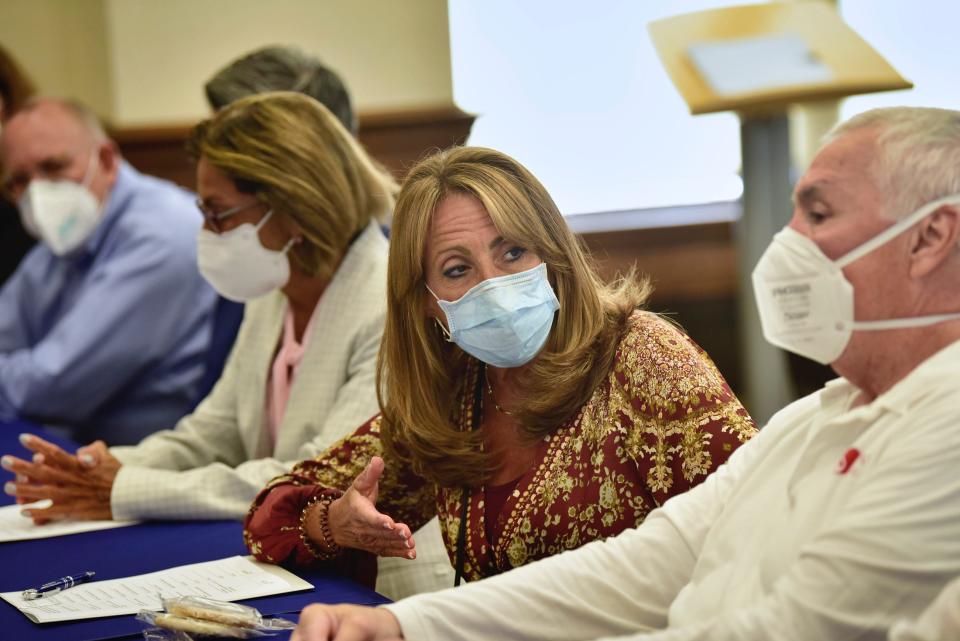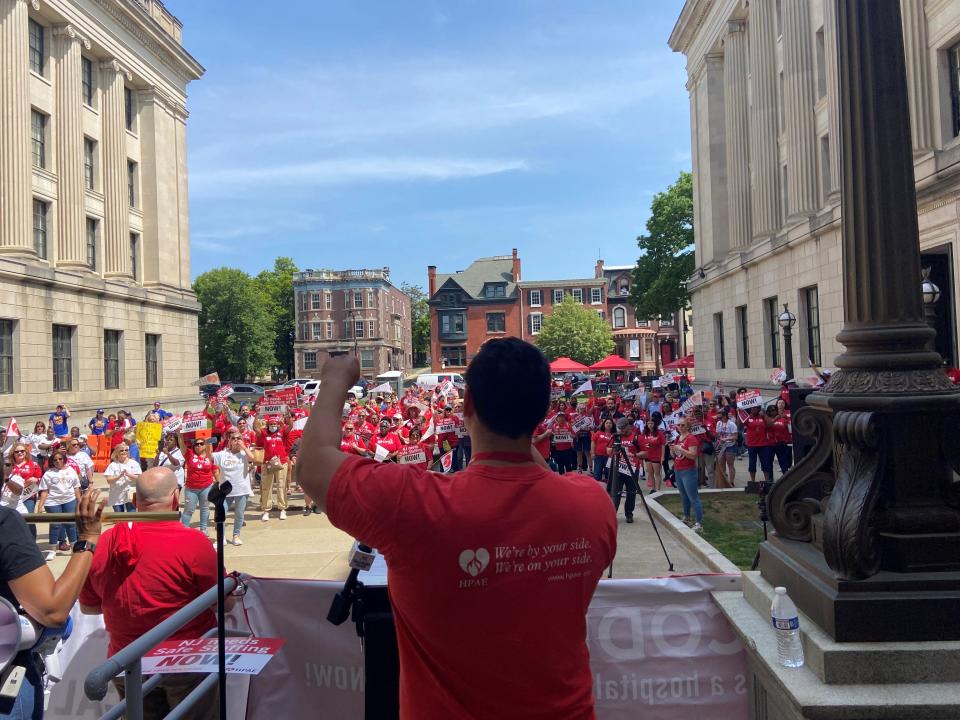Nurses threaten to strike at 3 NJ hospitals. Here's why
About 3,000 nurses have voted to authorize a strike at three New Jersey hospitals — Englewood Health, Hackensack Meridian's Palisades Medical Center in North Bergen and Cooper University Health Care in Camden — as they battle for mandatory staffing ratios to be placed in their contracts, union officials announced Tuesday.
Nurses at each hospital have been demanding enforceable nurse-to-patient ratios to cut down on work overloads that they say have been chasing their colleagues out of the profession.
"This is a non-starter for us," said Debbie White, a nurse and president of the Health Professionals and Allied Employees union. "Members will do whatever is necessary to get this into our contracts."
Story continues below photo gallery
All three contracts expire on Friday. The unions would then be required to give a 10-day notice before going on strike.
Benjamin Goldstein, a Hackensack Meridian spokesman, said the network was ready to hire temporary nurses at Palisades in North Bergen to care for patients during a possible strike.
"If HPAE decides to move forward with a strike and takes team members away from patients to walk a picket line, our hospital will remain open and operational," Goldstein said in a statement. Palisades "is prepared to execute a comprehensive strike contingency plan to ensure minimal disruption for those getting care or visiting our hospital during HPAE’s strike."

Cooper spokeswoman Wendy Marano said staffing ratios have been in the contracts between the hospital and nurses since 2004.
"Cooper has been negotiating in good faith with HPAE and has proposed a significant wage increase and enhanced staffing ratios – some of the strongest in the state, once again, demonstrating Cooper’s commitment to its nurses and patient safety," she said in a statement.
Representatives for Englewood did not immediately respond to a request for comment Tuesday afternoon.
Cooper has 1,500 unionized nurses, followed by Englewood with about 800 and Palisades with 750. White said more than 90% of members authorized the strike vote at each hospital.
Staffing has been a constant issue for nurses and hospitals for years, but the COVID-19 pandemic exacerbated the problem as it prompted a wave of early retirements and career changes for many health care workers.
Nearly a third of nurses left direct patient care at New Jersey hospitals from 2020 to 2023, according to HPAE. Of New Jersey's 147,000 licensed nurses, only about half are working, union leaders said.
Ratios will help hospitals recruit new nurses and retain veterans to help solve the staffing problems, said Alice Barden, a nurse and president of the local unit at Englewood.
Nurses demonstrated outside Statehouse
Hundreds of nurses demonstrated outside the statehouse in Trenton last year to support a bill that would establish staffing ratios at hospitals and other medical facilities. The bill — S1941 — has lingered in the Legislature for several years and has not gained much traction.
It would establish several nurse-to-patient ratios depending on the department. This includes one registered nurse for every five patients on a medical/surgical unit, one RN for every four patients in an emergency department and one RN for every two patients in a critical care, intensive care, neonatal or burn unit, among other ratios.

The union wants regulations similar to those passed 20 years ago in California that mandate staffing ratios.
"Safe staffing ratios work," said Tara Rojo, president of HPAE Local 5030 at Palisades. "They save lives."
The New Jersey Hospital Association, which lobbies legislators on behalf of almost 70 hospitals, has strongly opposed the bill, arguing that hospital administrators, nurses and other workers would lose their flexibility to respond in real time to the needs of their patients.
New Jersey saw a long strike by nurses last year at Robert Wood Johnson University Hospital in New Brunswick.
About 1,700 nurses, who were represented by the United Steel Workers union, walked off the job for four months citing staffing concerns as a major issue. The hospital paid more than $120 million for replacement nurses. The strike ended in December with the union saying it had received assurances of better staffing ratios.
White said that although the strike was long it gave her members more resolve to fight for staffing ratios.
"I don't think our members will tolerate any less than what they saw the [other nurses] go on strike for," White said.
Check back for updates to this story.
This article originally appeared on NorthJersey.com: Nurses threaten to strike at 3 NJ hospitals over staff ratios

